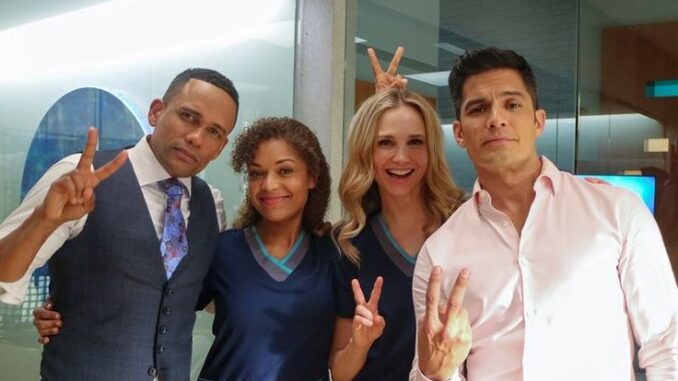
After seven powerful and emotionally resonant seasons, The Good Doctor is preparing to say goodbye. ABC has officially announced that the upcoming season of the beloved medical drama will be its last, signaling the end of an era for a show that has changed the way audiences perceive neurodiversity, compassion, and medicine on television. For many fans, this announcement is both bittersweet and reflective—a time to celebrate the show’s groundbreaking impact while preparing for a heartfelt farewell.
When The Good Doctor first premiered in 2017, few could have predicted just how deeply it would resonate with audiences around the world. Adapted from a South Korean series and developed by David Shore, the mastermind behind House, the show introduced viewers to Dr. Shaun Murphy, a brilliant young surgical resident with autism and savant syndrome. Played by Freddie Highmore, Shaun quickly became one of TV’s most unique and compelling protagonists.
The show was a gamble—centered around a neurodivergent character navigating the high-pressure world of medicine. But what could have been a one-note portrayal became a thoughtful exploration of identity, empathy, and perseverance. Through Shaun’s eyes, viewers experienced the world in a different way. They learned about the challenges faced by individuals on the autism spectrum, not through lectures or statistics, but through raw, human storytelling.
Freddie Highmore’s portrayal of Shaun was nothing short of transformative. With meticulous attention to detail, Highmore delivered a performance that was both emotionally nuanced and deeply respectful of the autism community. His work earned him a Golden Globe nomination and widespread critical acclaim, but more importantly, it helped to shift cultural perceptions. Shaun Murphy was never just a “brilliant doctor with autism.” He was a person—complex, flawed, loving, anxious, and brave. His storylines, from navigating romantic relationships to standing up to discrimination in the workplace, allowed audiences to connect with him beyond his diagnosis. He wasn’t an exception to a stereotype; he broke it entirely.

While Shaun remained the heart of the show, The Good Doctor also thrived thanks to its strong ensemble cast. From the fatherly mentorship of Dr. Aaron Glassman (Richard Schiff) to the evolving friendship with Lea Dilallo (Paige Spara), and the guidance of colleagues like Dr. Audrey Lim (Christina Chang) and Dr. Alex Park (Will Yun Lee), the relationships within the hospital walls added depth and richness to every storyline.
ABC’s decision to end The Good Doctor was not due to controversy or creative failure. Rather, it appears to be a thoughtful and mutual decision between the network and the creative team. Ratings have naturally declined in recent seasons—as they often do with long-running series—but the show has maintained a loyal fan base.
In a joint statement, showrunners David Shore and Liz Friedman, along with Freddie Highmore, expressed their gratitude for the journey and their desire to give the characters a proper send-off. “We always knew we wanted to end Shaun’s story on our own terms,” said Shore. “This final season will be about honoring everything this character has taught us.” The team also emphasized that they wanted the final season to feel like a “thank you” to fans. Rather than dragging the story past its prime, they chose to end it with purpose and love.
The final season will also reportedly revisit key characters and unresolved arcs. Fans hope to see the return of Dr. Claire Browne (Antonia Thomas), who left the show in Season 4 but made a brief reappearance in Season 5. There are also questions about Dr. Glassman’s health, the future of Shaun and Lea’s marriage, and whether Shaun will step into a mentorship role for a new generation of doctors. The writers promise that while not every storyline will have a “perfect” resolution, the characters’ journeys will end in a way that feels true and earned. As The Good Doctor prepares to wrap up, its legacy is already secure. It has helped pave the way for more nuanced, respectful portrayals of people with disabilities and mental health conditions in mainstream media. It has challenged stereotypes, given voice to underrepresented stories, and touched lives in meaningful ways.
Many fans have written in over the years to express how much the show has meant to them. Some, like parents of children with autism, said it gave them hope. Others, including people on the spectrum themselves, said it made them feel seen for the first time. And countless viewers simply connected with the show’s core message: that everyone deserves to be valued—not despite their differences, but because of them.
